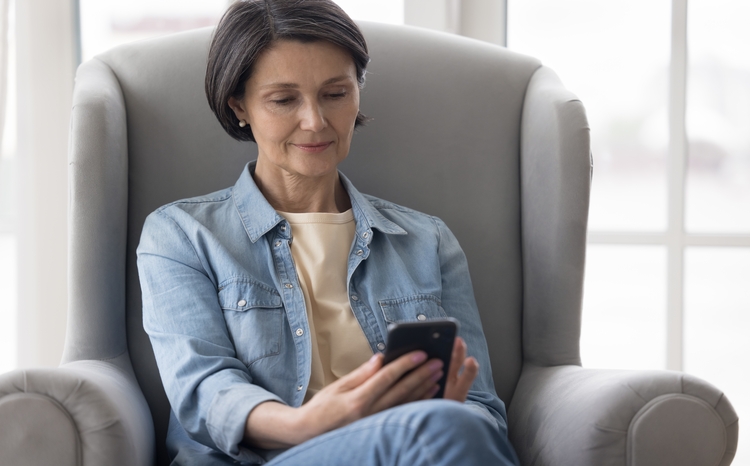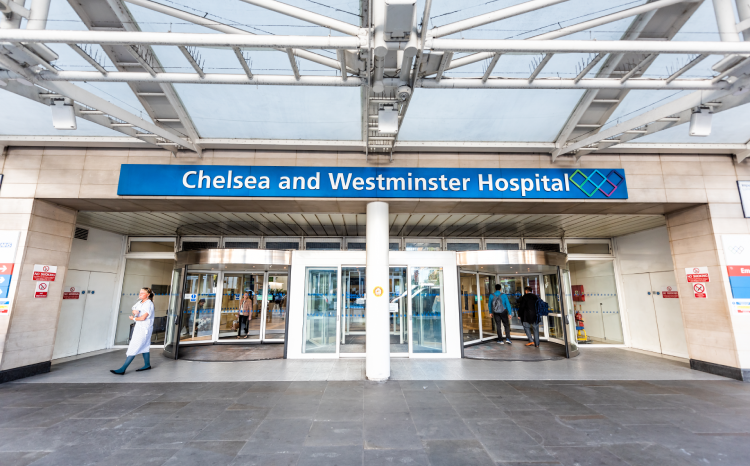Your morning summary of digital health news, information and events to know about if you want to be “in the know”.
 News
News
 German Bionic has launched its Apogee+ Power Suit, an exoskeleton designed to support physically demanding tasks in healthcare settings. The suit, developed alongside Berlin’s Charité Hospital, can apparently increase lifting capacity by 20%, making it easier for staff to manage loads and maintain difficult positions while operating on patients. The suit also features AI-driven support to reduce spinal strain.
German Bionic has launched its Apogee+ Power Suit, an exoskeleton designed to support physically demanding tasks in healthcare settings. The suit, developed alongside Berlin’s Charité Hospital, can apparently increase lifting capacity by 20%, making it easier for staff to manage loads and maintain difficult positions while operating on patients. The suit also features AI-driven support to reduce spinal strain.
 Leeds Teaching Hospitals NHS Trust has received a £5.1 million funding boost for the National Pathology Imaging Co-operative. The funding will support the development of its digital pathology platform, which aims to improve cancer diagnosis using AI. The initiative is part of the NHS Data for Research and Development Programme, set up to make it easier for researchers to access pathology data.
Leeds Teaching Hospitals NHS Trust has received a £5.1 million funding boost for the National Pathology Imaging Co-operative. The funding will support the development of its digital pathology platform, which aims to improve cancer diagnosis using AI. The initiative is part of the NHS Data for Research and Development Programme, set up to make it easier for researchers to access pathology data.
 BUPA UK has announced that it using Google Cloud to build its cloud-first digital healthcare platform, providing direct access to care and the tools to enable proactive health outcomes for customers. The Bupa Blua platform is intended to allow BUPA to develop innovative ways to improve members’ wellbeing, reduce the cost of care, while delivering a personalised healthcare experience.
BUPA UK has announced that it using Google Cloud to build its cloud-first digital healthcare platform, providing direct access to care and the tools to enable proactive health outcomes for customers. The Bupa Blua platform is intended to allow BUPA to develop innovative ways to improve members’ wellbeing, reduce the cost of care, while delivering a personalised healthcare experience.
 Univa Health has secured £1 million to develop its digital platform for personalised eating disorder care. The platform, called Univa Connect, aims to support clinicians with real-time monitoring and tailored treatment plans. The funding will also help launch Univa’s first clinical study in collaboration with the NHS, which aims to improve intervention and recovery rates for people with eating disorders.
Univa Health has secured £1 million to develop its digital platform for personalised eating disorder care. The platform, called Univa Connect, aims to support clinicians with real-time monitoring and tailored treatment plans. The funding will also help launch Univa’s first clinical study in collaboration with the NHS, which aims to improve intervention and recovery rates for people with eating disorders.
 A new device for bone surgery has been used during surgery for the first time at Royal United Hospitals Bath NHS Foundation Trust. The Drill Guidance System (DGS), developed with the University of Bath, uses camera-based technology to improve the accuracy of bone drilling, reducing operating time and the need for X-rays. The DGS has been used in trauma and joint surgeries, and could lower infection risks and tissue damage in the long term.
A new device for bone surgery has been used during surgery for the first time at Royal United Hospitals Bath NHS Foundation Trust. The Drill Guidance System (DGS), developed with the University of Bath, uses camera-based technology to improve the accuracy of bone drilling, reducing operating time and the need for X-rays. The DGS has been used in trauma and joint surgeries, and could lower infection risks and tissue damage in the long term.
 Did you know?
Did you know?
There have been 1.2 million more A&E attendances so far this year compared to the same pre-pandemic period, according to data from NHS England.
Between January and September 2024, 20.4 million A&E visits were recorded, including the busiest-ever September with 2.21 million attendances and more than 530,800 emergency admissions.
The huge pressure on services saw many patients waiting too long for care, with four-hour performance remaining below the constitutional standard of 95%, at 74.2%.
 What we’re reading
What we’re reading
The report ‘Are LLM-based ambient scribes and clinical summarisers medical devices?’, published by Hardian Health on 27 September, examines whether large language models (LLMs) used for clinical documentation should be classified and regulated as medical devices.
Authors Dr Hugh Harvey and Mike Pogose highlight concerns regarding the regulatory gaps surrounding AI-driven clinical tools like “ambient scribes” and summarisers, which are gaining popularity in healthcare. They argue that, since these tools help in regulated tasks like summarising clinical data, they should fall under medical device regulations.
Harvey and Pogose say that these technologies should be scrutinised, noting that errors or inaccuracies in AI-generated summaries could compromise patient safety. They also argue that developers of these tools should be prepared to meet the same regulatory standards as other medical devices.
 Upcoming events
Upcoming events
23 October, Coventry – AI Transform















